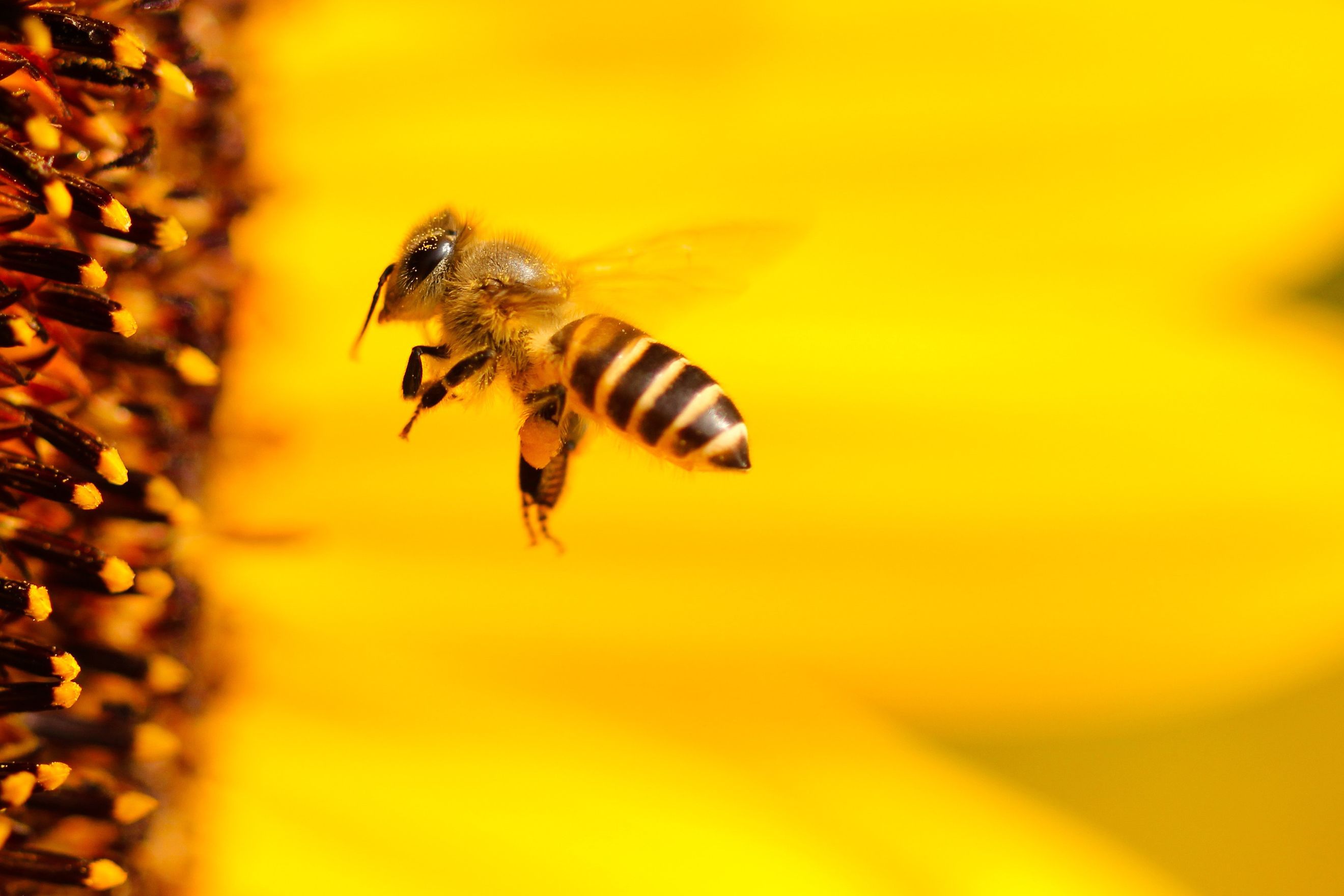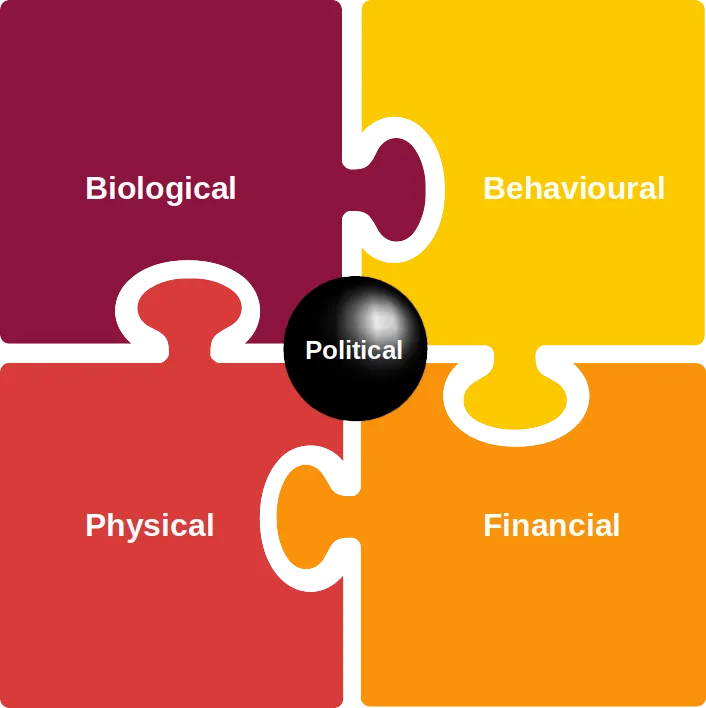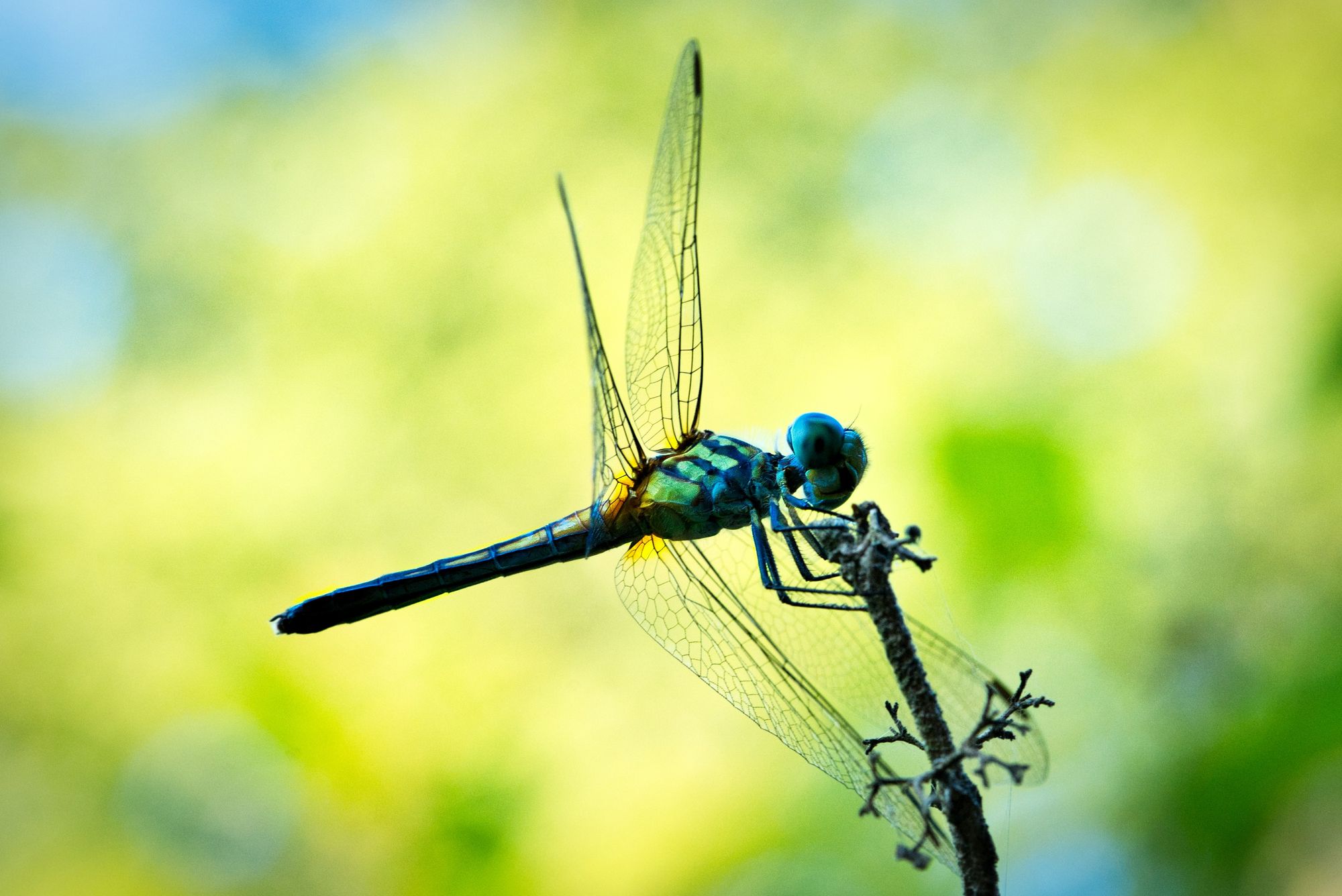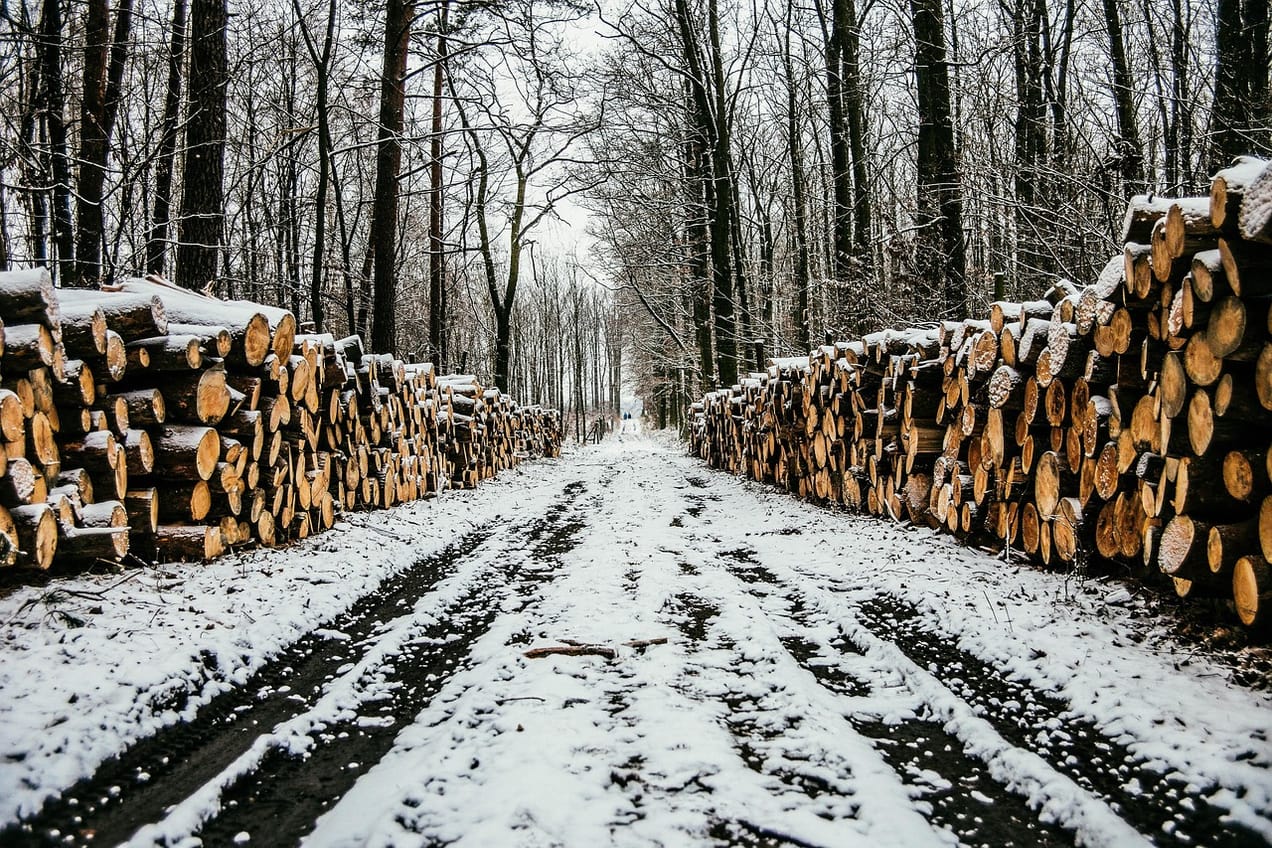
The bees' needs
The demise of wild bee populations through temperature changes, land-use and biodiversity loss are putting added strain on commercialised honeybee populations and impacting pollination and ultimately food crop yields.
Summary: The demise of wild bee populations through temperature changes, land-use and biodiversity loss are putting added strain on commercialised honeybee populations and impacting pollination and ultimately food crop yields. One of the most impactful diseases, American foulbrood, now has an approved vaccine.
Why this is important: Research estimates that the loss of pollinators is causing 427,000 excess deaths each year worldwide, due to the reduction in the availability of nutritious foods ranging from fruit and vegetables to nuts.
The big theme: Zero hunger and good health and well-being are two of the UN Sustainable Development Goals. Food and water are essential for life. Plants including their seed-bearing structures (fruit, vegetables and nuts) provide important nutrients to humans directly and indirectly through livestock consumption. To reproduce, flowering plants need to be pollinated and one important vehicle for pollination is the humble bee. Changing temperatures, land-use and biodiversity loss are leading to declines in wild bee populations putting added strain on commercialised honeybee populations in particular through their exposure to disease. Both physical and pharmacological solutions could rejuvenate those populations.

The details
Summary of a story from The Guardian
The US Department of Agriculture (USDA) has granted a conditional license to US biotech company Dalan Animal Health (Dalan) for a vaccine for honeybees against American foulbrood disease (AFB). This makes it the world’s first approved vaccine for honeybees. AFB which has spread worldwide and has decimated colonies that provide food pollination, is caused by the bacterium Paenibacillus larvae and can be fatal to hives. It is currently found in 25% of US hives and there is currently no cure. The Dalan vaccine works by incorporating some of the bacteria into the royal jelly that is fed by worker bees to the queen. Developing bee larvae are then given immunity to the disease as they hatch.
The commercialisation of honeybees, driven by the demise of many wild bee species, has led to increased exposure to a variety of diseases making the overall population even more vulnerable. Dalan claim that the mechanism for their AFB vaccine could lead to the development of vaccines for other bee-related diseases including the European version of AFB.
Why this is important
It has been estimated that flying insects, in particular, bees and flies are responsible for as much as US$557 billion worth of global food production per annum. Research from a broad team including the Harvard TH Chan School of Public Health estimates that the loss of pollinators is causing 427,000 excess deaths each year worldwide, due to the reduction in the availability of nutritious foods ranging from fruit and vegetables to nuts. The researchers calculated that between three and five percent of fruit, vegetable and nut production has been lost due to that sharp decline in pollinator populations. Climate change, air pollution and land-use changes have contributed to this biodiversity loss and its knock on effects.
Some crops do not depend on insect pollinators, including wheat, rice, corn, rye, barley and oats as well as some nut producing trees including walnuts and pistachios - they are wind-pollinated. However, even ones that are not completely dependent on insect-pollination, see significant improvements in yields with an abundance of, for example, bees. A 2017 study found that encouraging bees can raise arable crop yields by a third. Without that yield support to produce the same amount of food could require an increase in the area of land needed = land-use change. Remember, that was one of the things linked with pollinator population declines! Whilst in some parts of the world farmers are resorting to hand-pollination techniques, for example, for cocoa in Indonesia and Ghana, that is clearly not ideal given the associated high labour costs.
American Foulbrood is a particularly troublesome disease. Although the spore-forming bacteria that cause the disease, Paenibacillus larvae, are gram-positive (and so in theory easier to kill than gram-negative ones), those spores can last for decades in the environment and so pose a continuous threat to honey bee colonies. Traditionally, to prevent spread and control infection required a holistic approach that was largely physical: burning and disinfecting both bees an equipment, albeit with some antibiotic use as a final intervention. The Dalan vaccine could provide a truly preventative measure. It was originally developed at the University of Helsinki and Dalan was assigned the patent as part of a licence agreement with the University in 2020. As well as bacterial pathogens, fungi are the leading cause of disease, particularly as worker bees forage. The main fungal infections are chalkbrood and sacbrood. Ironically fungi could also be another saviour of the bee from viruses. Famed mycologist, Paul Stamets holds patents on a number of promising treatments based on research examining extracts from a number of polypore fungal species that reduced levels of honeybee deformed wing virus and Lake Sinai virus.
In addition to 'pharmacological' solutions, there are physical solutions too, namely protecting, rejuvenating and creating habitats for bees, insects and other pollinators to flourish. In urban areas, green or living roofs have provided new stopping grounds for bees and have been installed in cities such as Utrecht, Liverpool, Cardiff and are being trialled in Aberdeen. These are not without drawbacks. Living roofs require more maintenance and are heavier and there are concerns about unintended consequences such as attracting seagulls! Bee bricks are another innovation that provide a nesting spot in urban areas for bees - essentially they are bricks with holes in them. Brighton council passed a planning condition requiring any new build more than five metres high having to include bee bricks, however, some have claimed that they could attract mites or encourage the spread of disease.
Insects including bees are also important as part of the food chain as well as in the dispersal of seeds in addition to their crucial roles as pollinators. Whilst there are absolute population declines, climate change is also impacting migration and habitats bringing in insects into new areas along with potential pathogens leading to diseases in regions that have not had to deal with them (at least not in a long time).
Finally, bees could provide another important role in our sustainable future. A systemic risk as big as, and intimately related to climate change risk and biodiversity loss risk is the threat of antimicrobial resistance. Finding new antibiotics, both pharmacological and natural products with antimicrobial properties, is one important way to mitigate the threat. Methylglyoxal which is found in Manuka honey has been found to have strong antimicrobial properties and surgical grade honey has been used in wound treatment alongside other.. ahem... interesting natural methods. If the issue of antimicrobial resistance is new to you, or you want to find out more, we have two long blogs on the topic:

...which gives an overview of why it is important and the breadth of ways we can fight it; and

... which looks at an often overlooked area: physical approaches.
Something a little more bespoke?
Get in touch if there is a particular topic you would like us to write on. Just for you.
Contact us
Please read: important legal stuff.


